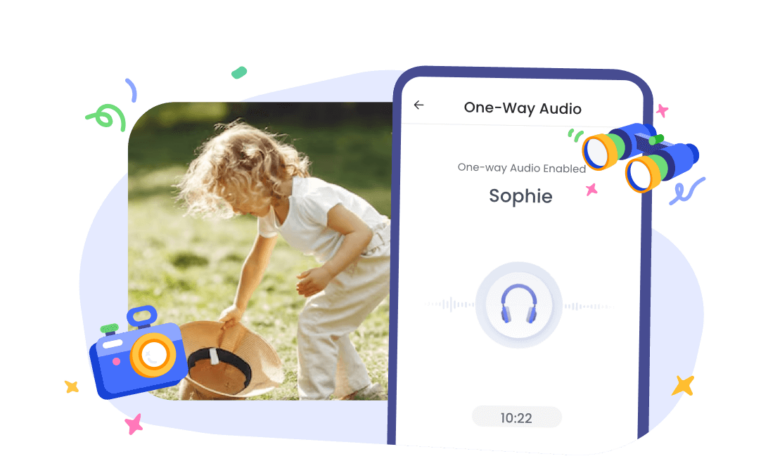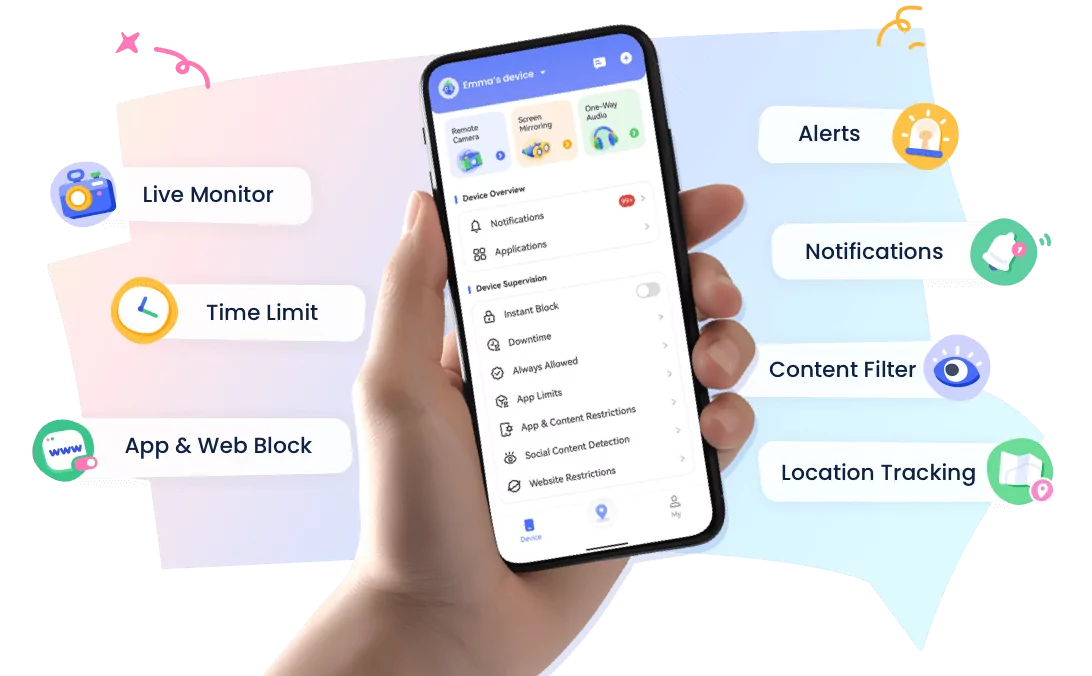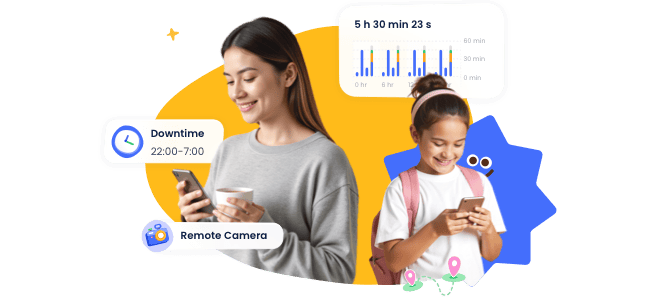Can Someone Record You Without Your Consent? Laws Explained
It's no surprise that we all see it daily on social media, where videos of people are being recorded and posted online. The audio and video recordings can happen anywhere — during a phone call, in public, or even in an online meeting.
Then, is it legal for someone to record you without your consent? In truth, the answer isn't always straightforward. In this article, we'll break down the key laws that govern audio and video recording to help you understand your rights.
Is It Illegal to Record Someone Without Permission?
Whether it is legitimate or not for someone to record you without permission depends on your country's consent law. Basically, there are two consent laws in most jurisdictions, and they are:
- One-party consent laws
- All-party consent laws
One-Party Consent Law vs. All-Party Consent Law
In one-party consent laws, it's legal to record a conversation as long as at least one person involved consents to the recording. That means you can legally record a conversation you're part of—even if other people don't know.
In contrast, if you're in a two-party or all-party consent state, then all parties involved in the conversations must be aware of and agree to the recording. If not, your activity of recording without their consent is illegal in a state that practices two-party consent law.
So, before you start recording someone, it is best to check the consent law applicable in your state. The table below shows examples of popular states in the US and the consent laws they adopt.
| One-Party Consent States | Alabama, Alaska, Arizona, Arkansas, Colorado, District of Columbia, Georgia, Hawaii, Idaho, Indiana, Iowa, Kansas, Kentucky, Louisiana, Maine, Minnesota, Mississippi, Missouri, Nebraska, New Jersey, New Mexico, New York, North Carolina, North Dakota, Ohio, Oklahoma, Rhode Island, South Carolina, South Dakota, Tennessee, Texas, Utah, Virginia, West Virginia, Wisconsin, Wyoming |
| All-Party Consent States | California, Connecticut, Delaware, Florida, Illinois, Maryland, Massachusetts, Michigan, Montana, New Hampshire, Oregon, Pennsylvania, Vermont, Washington |
*Resource: https://www.justia.com/50-state-surveys/recording-phone-calls-and-conversations/
So, When Can Others Record You Without Your Consent?
Now, when is it legitimate for someone to record without your consent? Let's look at some scenarios that are always legal for unauthorized recording:
1Record in Public Spaces
If you're in a public event where there is no reasonable expectation of privacy, and someone records you without your consent, it is generally considered legal. Of course, this does not include clandestine photo-taking, like upskirting.
For example, if you're speaking in a public space, either in media interviews or seminars, the audience may record your video or audio for sharing or review.
2Record Under Business Security Surveillance
Some companies usually use surveillance tools like CCTV to monitor their clients against fraudulent activities. If you visit such a business and you're being recorded, it is legitimate.
3Record Criminal Activity
Sometimes, you become a witness to a criminal activity, such as robbery, assault, or vandalism, and your recording can be used as evidence in court or given to law enforcement.
4Parent Monitoring
In many jurisdictions, including the US, parents have the right to record and monitor their minor's activities so as to prevent them from different vices, including sexual predation, cyberbullying, identity theft, and fraud.
For parents who are looking to record children's offline surroundings or online activities, we recommend using AirDroid Parental Control. It can help you view and record a child's environment. You can even use it to record your child's call as long as they put the phone call on speaker.

What to Do If Someone Records You without Consent
If someone recorded you without your consent, especially in a private space, there is a high chance that they want to use such recordings for malicious activities. So, it is pertinent to protect yourself against unauthorized recording. Now, how do you do that? Here it is:
Check the Legalityin Your State
If you've been recorded unjustly, first check what the local law of where you stay says about the legality of an authorized recording. And this will not only save you from making uninformed decisions but also guide you on the appropriate legal steps to take if your rights have been violated.
Ask the Person to Delete the Recording
Well, what's the next? Ask the person politely to delete the recording, especially if it violates your privacy. Doing this will save you from unnecessary conflict and help de-escalate the situation without involving legal authorities.
Report to Authorities
If after you've asked them politely to delete the recording and they refuse, don't pick a fight or get into any argument with them. Instead, report them to the police and other appropriate authorities.
The authorities will know the right measures to take to prevent further misuse of the recording and to protect your rights under the law.
Consult a Lawyer
If you've been recorded without your consent, hire and consult a lawyer. Your lawyer will let you know whether you have grounds to sue or not. They can even help you to obtain a court order to prevent the recorder from sharing the recording. In short, your lawyer will know what is best for you.
Protecting Yourself From Unauthorized Recording
You can also take preventive steps to protect yourself from being recorded in the future. Here are some tips:
Established a Clear Verbal Boundary
Tell people around you that you don't want to be recorded at any given time. If possible, ask them to leave any recording materials out of your conversation.
Avoid Behavior that Can Trigger the Action
People start recording when they notice that some things happen. For example, people will want to record you if you're involved in an argument or a public outburst. Once you stay out of these behaviors, there's very little chance you can be recorded.
Watch out for Some Recording Signs
Whenever you're out or in a meeting, make sure you always watch out for some signs of being recorded. If you notice small gadgets being placed in a suspicious manner, there is a likelihood you're being recorded.
Conclusion
All in all, it is legal to record someone with their consent in a one-party state like Texas or Alabama. And if you're in an all-party state like California, recording without all parties' consent may result in up to a year in jail with a fine of about $2500.
Most importantly, if you need to record someone, make sure your purpose and process are legal and without malicious intent.















Leave a Reply.